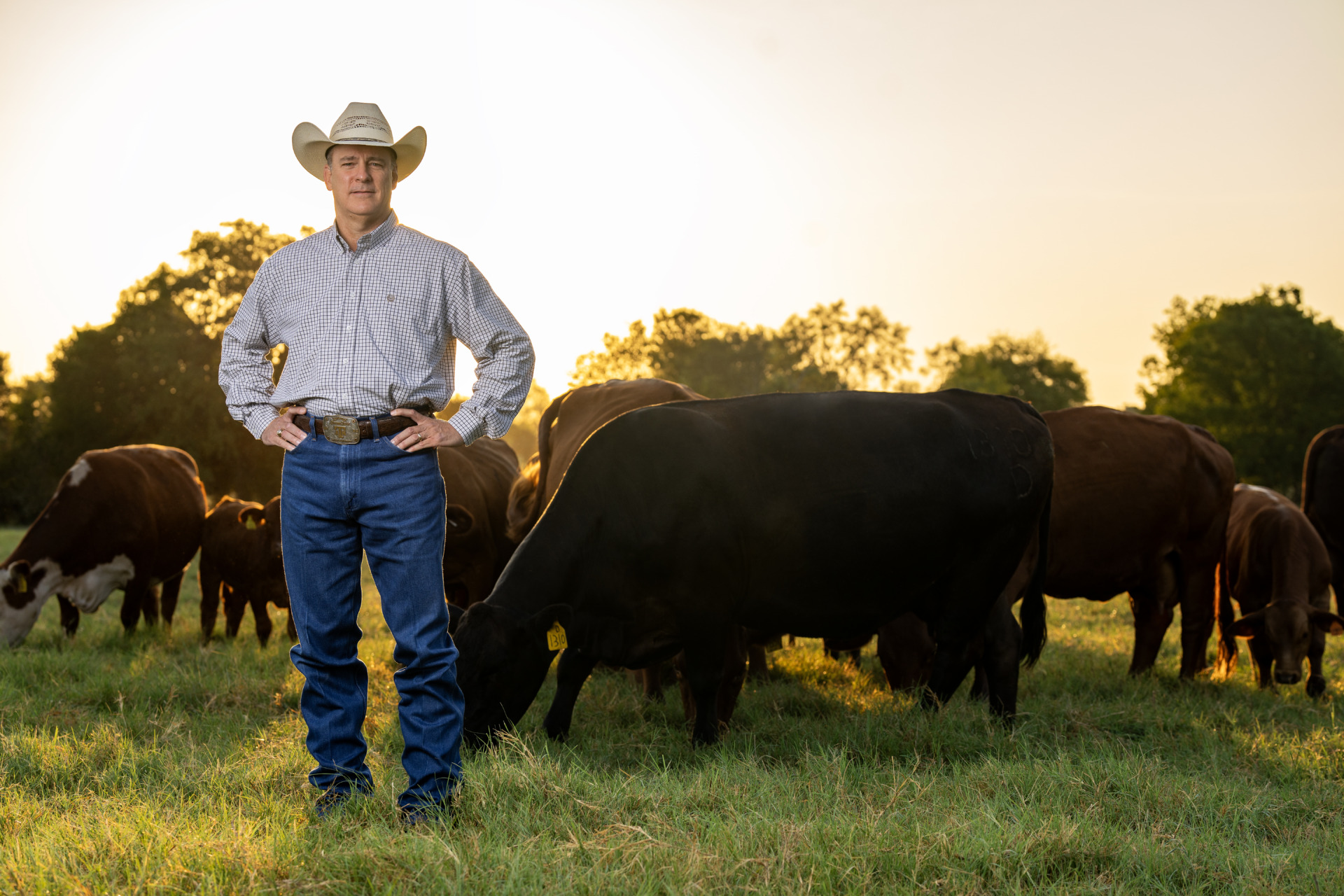Mathis selected to lead Texas A&M Department of Animal Science
Former student returns to lead world-class faculty, staff and students in animal science teaching, research and extension
Clay Mathis, Ph.D., has been named the new head of the Department of Animal Science, making a return to the Texas A&M College of Agriculture and Life Sciences, beginning Oct. 1.
Mathis, a native of New Braunfels, is no stranger to the department as he earned both his bachelor’s in animal science in 1993 and his master’s in physiology of reproduction in 1995 at Texas A&M University. He earned his doctorate in ruminant nutrition in 1998 at Kansas State University.

He is returning to lead the team of faculty and staff to ensure the Department of Animal Science remains one of the most impactful animal science bodies of students and faculty in the world, internationally renowned for excellence in animal science teaching, research and extension.
“We are very excited to bring Dr. Mathis and his skillset as an educator, researcher and administrator to the Department of Animal Science,” said Jeffrey W. Savell, Ph.D., vice chancellor and dean for Agriculture and Life Sciences. “His leadership will be crucial as Texas A&M continues as the preeminent leader in animal science education and research, nationally and internationally.”
A vision of international leadership
Mathis said he looks forward to working with the department’s world-class faculty to ensure that Texas A&M University is home to the most modern animal science department in the world.
“I’m excited about the opportunity for the department to be even more impactful as we look into the future,” Mathis said.
Mathis said his vision for the department includes being the first choice of prospective undergraduate and graduate animal science students seeking the best animal science education, and of employers seeking the brightest and best-prepared animal science graduates.
“Also, we must be known as the nation’s pioneer in basic and applied animal science research and the most trusted, valid source of information for livestock producers and policymakers,” he said.
As department head, Mathis said he knows one of the greatest keys to achieving success for the department is the empowerment of the faculty. In what he considers to be one of the most important parts of his role, he plans to lead, inspire, recruit and support departmental faculty and staff as they work every day to further the mission and vision of Texas A&M University and Texas A&M AgriLife.
“Excellence in teaching, research and extension can only be achieved when faculty and staff are engaged, equipped, aligned and supported,” he said. “I have learned the importance of, and found success by, cultivating a culture of high but reasonable expectations, honest feedback, life balance, mutual respect and genuine trust, which has yielded a very high level of faculty and staff team commitment and extraordinary team results.”
From specialist, to professor, to administrator
Since 2010, Mathis has served as a professor and the Robert J. Kleberg Jr. and Helen C. Kleberg Endowed Chair and director at the King Ranch Institute for Ranch Management at Texas A&M University-Kingsville. Prior to that, he spent 12 years at New Mexico State University as an Extension livestock specialist.
Mathis’ research and Extension program at New Mexico State University centered on management practices that improve post-weaning health among beef calves originating in the Southwest, looking at everything from the forages and byproduct feedstuffs to vaccinations, weaning stress and preconditioning effects on lifetime performance. More recently, his focus has been on ranching systems management, with particular emphasis on factors driving success in the cow-calf sector of the business.
At the King Ranch Institute for Ranch Management, he expanded the institute’s mission to include research, hiring the first research scientist and establishing a doctoral training program as well as two endowed faculty positions.
While there, he also maintained and developed the curriculum for the Master of Science in Ranch Management program, which graduated 39 students during his tenure. These students currently manage over 100,000 cows and 770 horses on 7.5 million acres of ranchland and wildlife habitat across 13 states.
He also led his graduate students and faculty to complete more than 120 service-learning projects providing production and business management recommendations to more than 50 partnering ranches in North and South America.
Mathis is vice-chair of the National Cattlemen’s Beef Association Beef Quality Assurance Advisory Group and a co-chair of the University of Nebraska-Lincoln Beef Innovations Hub External Advisory Board. In addition, he was a charter member of the board of directors for the U.S. Roundtable for Sustainable Beef and has served on numerous committees within the American Society of Animal Science.
He is also a member of the Texas and Southwestern Cattle Raisers Association, American Quarter Horse Association, Cattle-Fax, the American Registry of Professional Animal Scientists, the Global Roundtable for Sustainable Beef and the Texas Wildlife Association.


